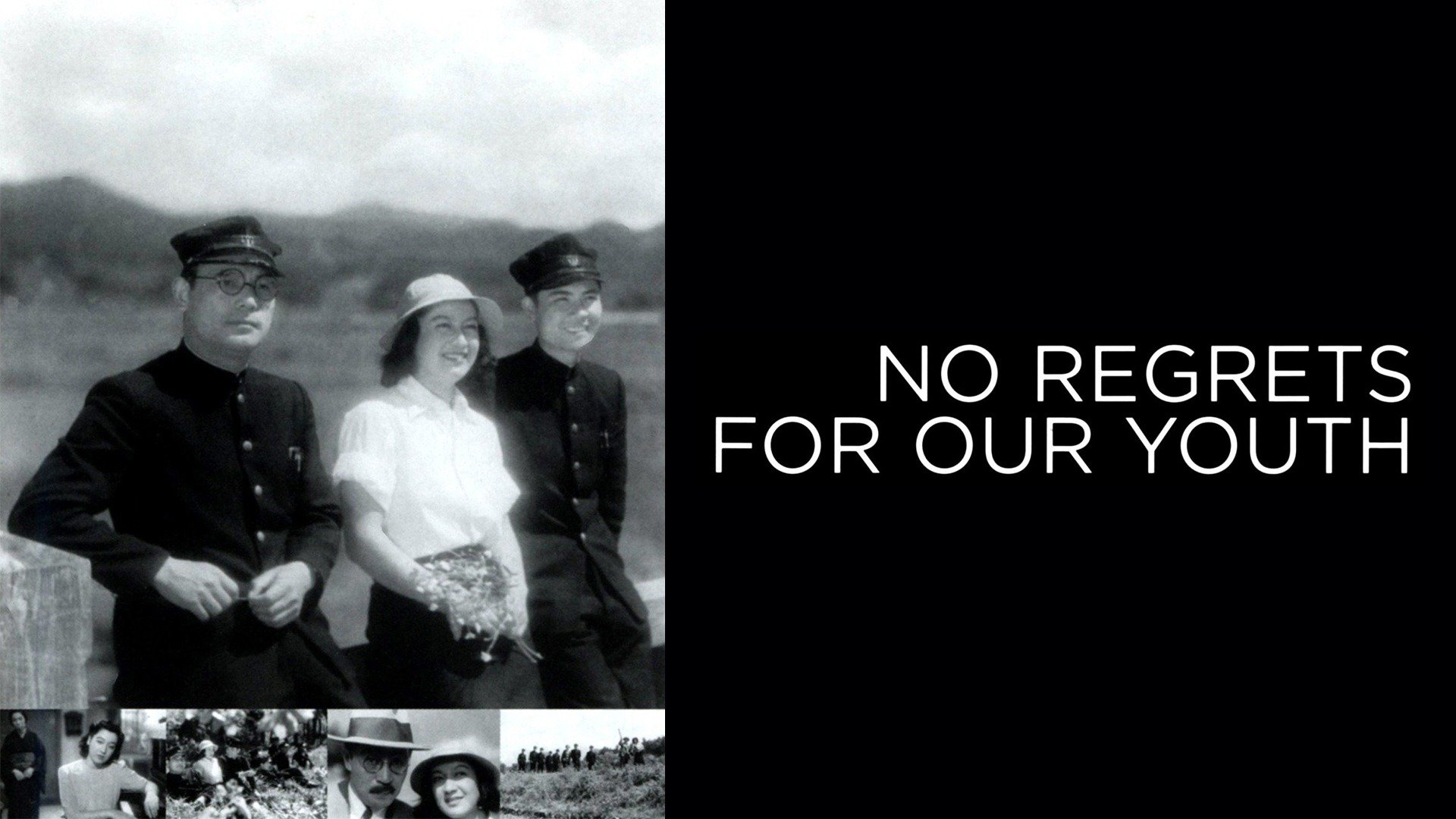
No Regrets for Our Youth is a compelling and thought-provoking movie that captivates audiences with its powerful storyline and remarkable performances. Directed by legendary filmmaker Akira Kurosawa, this Japanese film was released in 1946 and remains an influential masterpiece that continues to resonate with viewers today. The movie showcases Kurosawa’s signature style of storytelling, as well as his deep insights into complex human emotions and societal issues. Set against the backdrop of pre-war and post-war Japan, No Regrets for Our Youth explores themes of love, sacrifice, and the price of freedom amidst a tumultuous era in Japanese history. In this article, we will uncover 44 fascinating facts about No Regrets for Our Youth, shedding light on its production, cast, critical reception, and enduring legacy.
Key Takeaways:
- No Regrets for Our Youth” is a 1946 Japanese film directed by Akira Kurosawa, based on true events, and explores themes of political activism and personal growth during a time of political change in Japan.
- The movie received critical acclaim for its powerful storytelling, strong performances, and thought-provoking exploration of complex themes, making it an important work in Kurosawa’s filmography and a timeless cinematic masterpiece.
No Regrets for Our Youth was released in 1946.
No Regrets for Our Youth is a Japanese film directed by Akira Kurosawa. It was released in 1946, making it one of the early works of Kurosawa’s illustrious career.
The movie is based on true events.
No Regrets for Our Youth is inspired by the story of a real-life academic, Aizo Ikawa, who was dismissed from Kyoto Imperial University for his anti-war activities.
Setsuko Hara played the lead role.
Setsuko Hara, one of Japan’s most renowned actresses, portrayed the character of Yukie, a young woman who finds herself caught in political turmoil.
The film explores themes of political activism and personal growth.
No Regrets for Our Youth delves into the challenges faced by individuals who choose to stand up against injustice and the transformative power of personal conviction.
It was released during a time of political change in Japan.
The movie was released shortly after World War II, during a period of significant political and social transformation in Japan.
No Regrets for Our Youth received critical acclaim.
The film was praised for its powerful storytelling, strong performances, and thought-provoking exploration of complex themes.
Akira Kurosawa’s direction was widely praised.
Kurosawa’s masterful direction elevated the film and showcased his remarkable talent for visual storytelling.
The movie was not initially successful at the box office.
Despite its critical acclaim, No Regrets for Our Youth did not resonate with a wide audience upon its release and had a relatively modest box office reception.
The film’s title carries profound meaning.
No Regrets for Our Youth reflects the determination of the protagonist to live a life without regrets, even in the face of adversity.
No Regrets for Our Youth is an important work in Kurosawa’s filmography.
The film showcases Kurosawa’s early exploration of social and political themes, foreshadowing the depth and breadth of his later works.
It was a departure from Kurosawa’s previous films.
No Regrets for Our Youth marked a departure from Kurosawa’s earlier samurai-themed films and showcased his versatility as a director.
The movie emphasizes the importance of standing up for one’s beliefs.
No Regrets for Our Youth serves as a powerful reminder of the significance of personal conviction and the need to fight for justice.
It offers a unique perspective on pre-war and post-war Japan.
The film provides insights into the social and political climate of Japan during a transformative period in its history.
No Regrets for Our Youth is considered a classic of Japanese cinema.
The film has gained a reputation as a significant contribution to Japanese cinema and is often studied and celebrated for its artistic merit.
The movie’s screenplay was co-written by Eijir? Hisaita.
Eijir? Hisaita collaborated with Akira Kurosawa to bring the captivating story of No Regrets for Our Youth to life.
The cinematography captures the beauty of the Japanese landscape.
The stunning cinematography in No Regrets for Our Youth showcases the natural beauty of Japan, adding depth and richness to the film.
The film explores the role of women in Japanese society.
No Regrets for Our Youth addresses the challenges faced by women in a traditional, male-dominated society and their struggle for equality.
It serves as a historical document of post-war Japan.
No Regrets for Our Youth provides a glimpse into the aftermath of World War II and the subsequent rebuilding of Japan.
The movie’s soundtrack enhances the emotional impact of the story.
The poignant soundtrack of No Regrets for Our Youth adds depth and emotion to the narrative, evoking a range of feelings in the audience.
No Regrets for Our Youth is an exploration of personal and national identity.
The film delves into questions of individual identity and the broader sense of identity of a nation recovering from the scars of war.
It showcases the evolution of Kurosawa’s storytelling style.
No Regrets for Our Youth marks a significant milestone in Kurosawa’s career, demonstrating his growth as a filmmaker and his ability to tackle diverse subjects.
The movie’s themes are still relevant today.
No Regrets for Our Youth addresses universal themes of justice, personal sacrifice, and the pursuit of a meaningful life that resonate with audiences across generations.
No Regrets for Our Youth was restored in 2014.
The film was meticulously restored in 2014, ensuring its preservation for future audiences to appreciate its historical and artistic significance.
It showcases Kurosawa’s collaboration with his frequent collaborators.
No Regrets for Our Youth features the talents of Kurosawa’s frequent collaborators, including cinematographer Asakazu Nakai and composer Fumio Hayasaka.
The film is an embodiment of the Japanese spirit of resilience.
No Regrets for Our Youth embodies the indomitable spirit of the Japanese people and their ability to overcome adversity with courage and determination.
It offers a compelling portrayal of friendship and loyalty.
The relationships depicted in No Regrets for Our Youth highlight the enduring bonds of friendship and the sacrifices made for those we hold dear.
No Regrets for Our Youth is a reflection on the consequences of political ideologies.
The film explores the repercussions of political ideologies on individuals and society, urging viewers to critically examine the beliefs they hold.
It is a testament to the power of storytelling.
No Regrets for Our Youth showcases the transformative power of cinema in shaping perceptions, inspiring change, and fostering empathy.
The movie’s dialogue is thought-provoking.
No Regrets for Our Youth is known for its poignant and thought-provoking dialogue, which adds layers of depth to its characters and their motivations.
It incorporates elements of Japanese folklore.
No Regrets for Our Youth weaves elements of Japanese folklore and symbolic imagery into its narrative, adding mystical and poetic undertones to the story.
The movie presents a balanced view of history.
No Regrets for Our Youth avoids simplistic portrayals of right and wrong, instead presenting a nuanced exploration of complex historical events.
It showcases the resilience of the human spirit.
No Regrets for Our Youth celebrates the courage and resilience of individuals who refuse to be silenced in the face of adversity.
The film highlights the importance of education.
No Regrets for Our Youth underscores the transformative power of education in empowering individuals to challenge oppressive systems and advocate for change.
It illustrates the impact of political upheaval on personal lives.
No Regrets for Our Youth vividly depicts how political turmoil can disrupt and shape the lives of ordinary individuals, forcing them to make difficult choices.
The movie’s pacing keeps audiences engaged.
No Regrets for Our Youth maintains a gripping pace, ensuring that audiences remain captivated throughout the film.
It explores the conflict between tradition and progress.
No Regrets for Our Youth delves into the tension between societal traditions and the need for progress and social change.
The film’s message of hope resonates strongly.
No Regrets for Our Youth conveys a message of hope in the face of adversity, inspiring viewers to persevere and seek a better future.
It showcases Kurosawa’s meticulous attention to detail.
No Regrets for Our Youth exemplifies Kurosawa’s commitment to crafting every aspect of a film, from the script to the set design, with meticulous care.
The movie features powerful performances.
The cast delivers outstanding performances, bringing depth and authenticity to their respective roles in No Regrets for Our Youth.
It explores the concept of personal sacrifice.
No Regrets for Our Youth examines the sacrifices individuals are willing to make in the pursuit of their ideals and the greater good.
The film prompts introspection and self-reflection.
No Regrets for Our Youth encourages viewers to reflect on their own values, beliefs, and willingness to fight for justice.
It has inspired generations of filmmakers.
The impact of No Regrets for Our Youth can be seen in the works of subsequent generations of filmmakers who draw inspiration from its themes and storytelling techniques.
The movie’s reception has grown over time.
While initially overlooked, No Regrets for Our Youth has gained recognition and appreciation over the years for its artistic and historical significance.
No Regrets for Our Youth is a timeless cinematic masterpiece.
The film’s enduring relevance and artistic brilliance solidify its status as a timeless cinematic masterpiece that continues to captivate audiences.
Conclusion
In conclusion, “No Regrets for Our Youth” is a remarkable film that offers a captivating storyline, compelling performances, and a powerful message. This movie, directed by Akira Kurosawa, tells the story of a young woman navigating through tumultuous times in Japan’s history. With its themes of resilience, individuality, and standing up for what one believes in, “No Regrets for Our Youth” resonates with audiences of all backgrounds and generations.The film also serves as a testament to Kurosawa’s directorial prowess, seamlessly blending historical events with personal narratives. The cinematography is visually striking, capturing both the beauty and the horrors of war and societal change. The performances by the cast, particularly the lead actress, showcase the emotional depth and complexity of the characters.Overall, “No Regrets for Our Youth” is a thought-provoking and emotionally charged film that leaves a lasting impact on its viewers. It is a must-watch for cinephiles, history enthusiasts, and anyone interested in exploring the human spirit in the face of adversity.
FAQs
1. What is the plot of “No Regrets for Our Youth”?
The movie follows the journey of a young woman named Yukie, who finds herself caught in the midst of political turmoil and societal change in Japan during the 1930s and 1940s. It explores her transformation from a sheltered university student to an active participant in the resistance movement.
2. Is “No Regrets for Our Youth” based on a true story?
While the film is not a direct adaptation of a true story, it is loosely inspired by real events that took place in Japan during that period. The character of Yukie is believed to be influenced by several real-life figures who were involved in political and social activism.
3. What are some key themes explored in the movie?
The film delves into themes such as political activism, personal integrity, societal expectations, and the consequences of standing up for one’s beliefs. It raises questions about the individual’s role and responsibility in times of war and social change.
4. Who directed “No Regrets for Our Youth”?
The movie was directed by renowned Japanese filmmaker Akira Kurosawa. It is one of his earlier works, showcasing his distinct style and storytelling techniques.
5. How does “No Regrets for Our Youth” contribute to Japanese cinema?
The film is considered an important entry in the Japanese cinematic landscape. It explores historical events and societal issues, allowing viewers to gain deeper insights into Japan’s past. It also highlights Kurosawa’s talent for blending personal narratives with broader historical contexts.
Was this page helpful?
Our commitment to delivering trustworthy and engaging content is at the heart of what we do. Each fact on our site is contributed by real users like you, bringing a wealth of diverse insights and information. To ensure the highest standards of accuracy and reliability, our dedicated editors meticulously review each submission. This process guarantees that the facts we share are not only fascinating but also credible. Trust in our commitment to quality and authenticity as you explore and learn with us.


